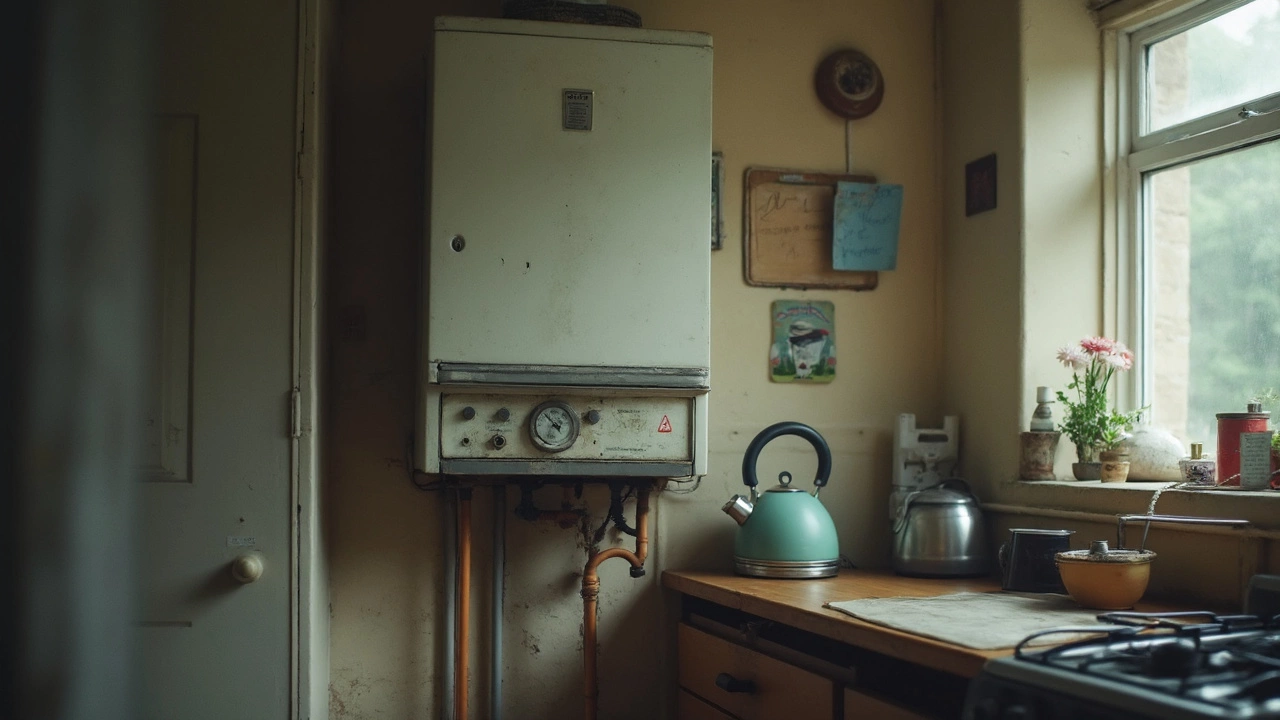Old Boiler Problems: What’s Going Wrong and How to Fix It
If your boiler’s been around for years, it’s natural to see a few hiccups. Cold showers, strange noises, or a sudden loss of heat can feel like a nightmare, especially when the weather’s chilly. The good news? Many of these symptoms have simple explanations, and you can often sort them out before calling an engineer.
First, remember that a boiler is a pressure‑controlled system. Over time, seals wear, iron builds up, and components lose efficiency. That’s why regular checks matter – they catch small faults before they turn into costly breakdowns.
Common Issues in Aging Boilers
1. Low pressure. Older boilers sometimes lose pressure after a few years. If the pressure gauge sits below 1 bar, the system may shut off to stay safe. Top it up using the filling loop (usually a silver pipe with two taps). Keep an eye on the gauge for a few days; if it drops again, there could be a leak.
2. Noisy operation. Knocking, banging, or whistling sounds often mean there’s trapped air or scale buildup inside the heat exchanger. Bleeding radiators can release air, while a descaling flush done by a professional clears mineral deposits.
3. Leaking water. A drip around the boiler or underneath it signals a faulty seal or a cracked pipe. Tighten any loose connections you can see, but don’t try to replace seals yourself – that’s a job for a Gas Safe engineer.
4. Failure to ignite. If the boiler tries to start but the flames don’t appear, the ignition electrode might be dirty or worn. Turning the boiler off, letting it cool, and cleaning the electrode with a soft brush sometimes works. If the problem persists, it’s safer to let a pro handle it.
5. Thermostat or control issues. Old boilers often have dated controls that drift or stop responding. A quick reset (turn off the boiler, wait a minute, then switch it back on) can clear glitches. For persistent faults, an upgrade to a digital thermostat can improve reliability.
What You Can Do Before Calling a Pro
Start with a visual check. Look for obvious leaks, rust, or loose wires. Make sure the area around the boiler is clear – nothing should block ventilation or access panels.
Next, run a basic maintenance routine. Bleed radiators, clean the thermostat, and verify that the pressure is within the 1‑1.5 bar range when the system is cold. These steps take just a few minutes and often solve the problem.If you’ve tried the above and the boiler still refuses to heat, it’s time to call a certified technician. For old boilers, an engineer can perform a full inspection, test the safety valve, and assess whether a repair or replacement is more cost‑effective. Remember, working on gas appliances without proper certification is illegal and dangerous.
Finally, keep a record of every service and repair. Not only does this help you spot recurring issues, but it also adds value if you ever decide to sell the house.
Old boiler problems can be frustrating, but most have clear signs and easy fixes. By staying on top of pressure, leaks, and noise, you’ll keep your home warm and avoid emergency call‑outs. When in doubt, always reach out to a Gas Safe registered professional – it’s the safest way to protect your family and your wallet.
